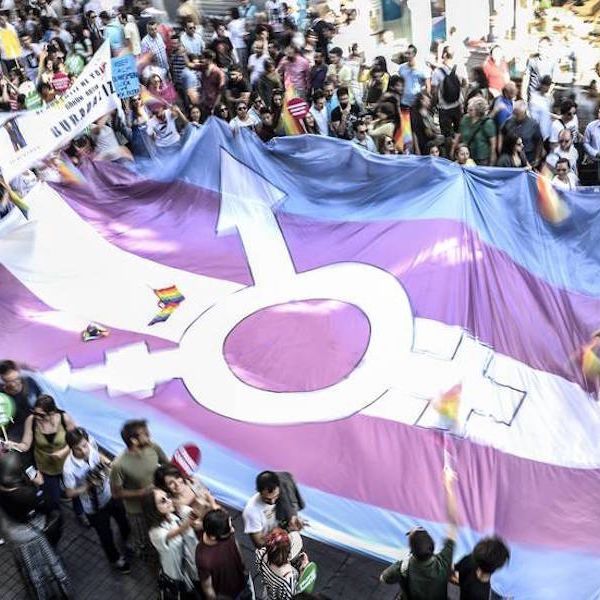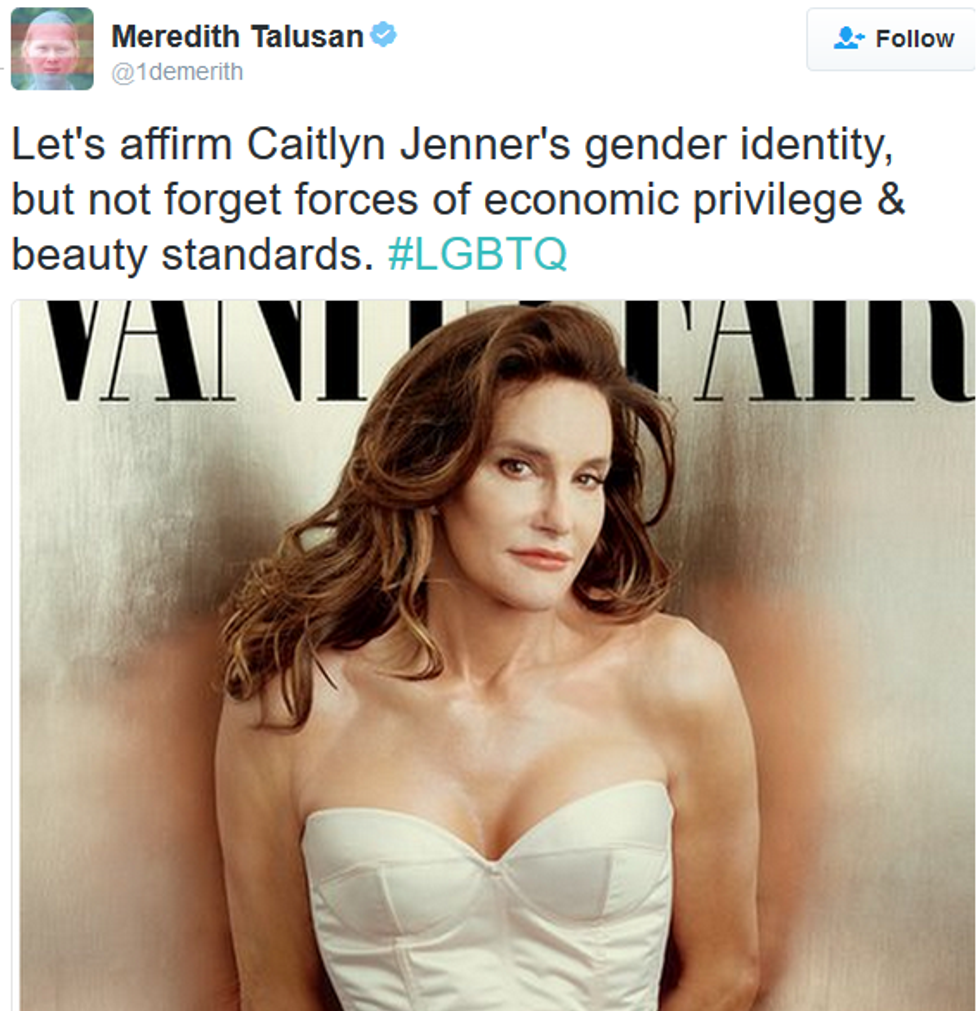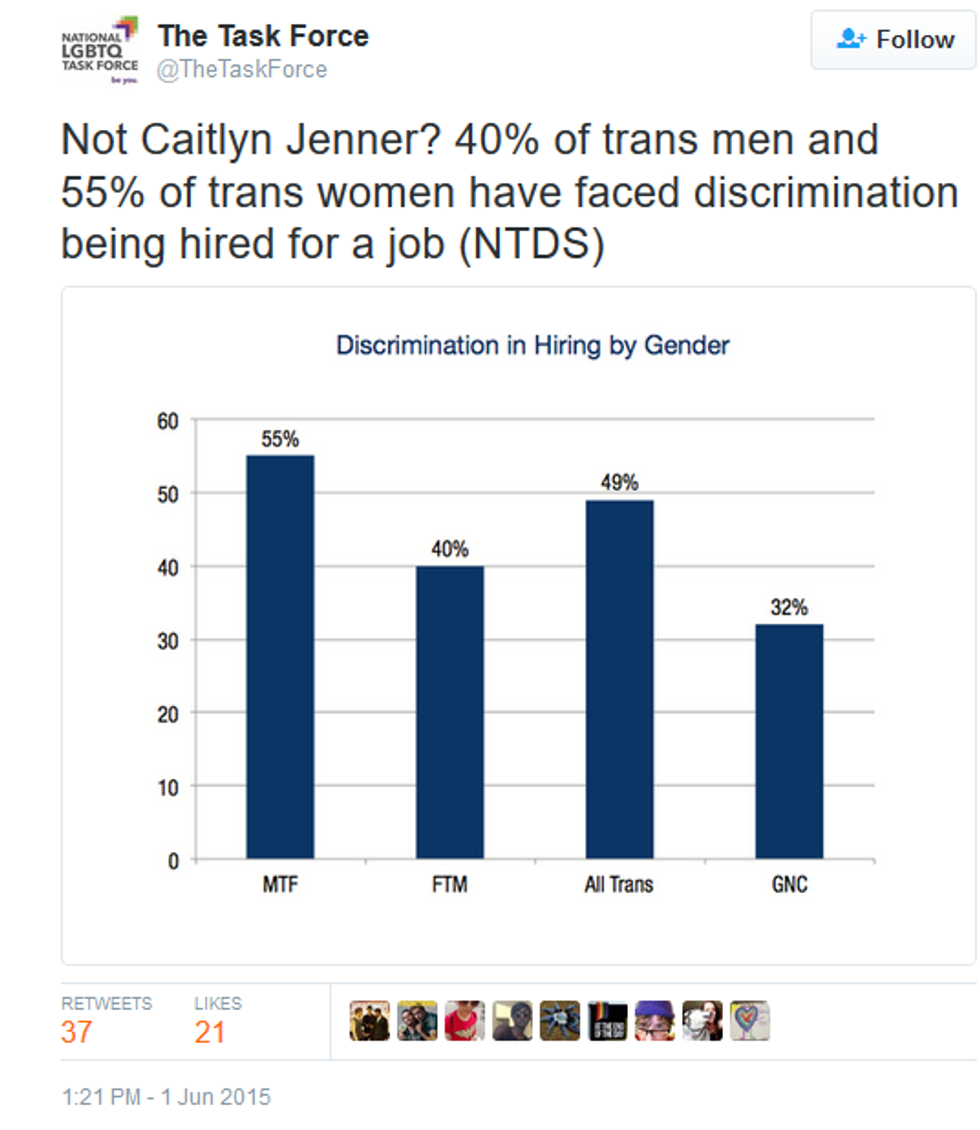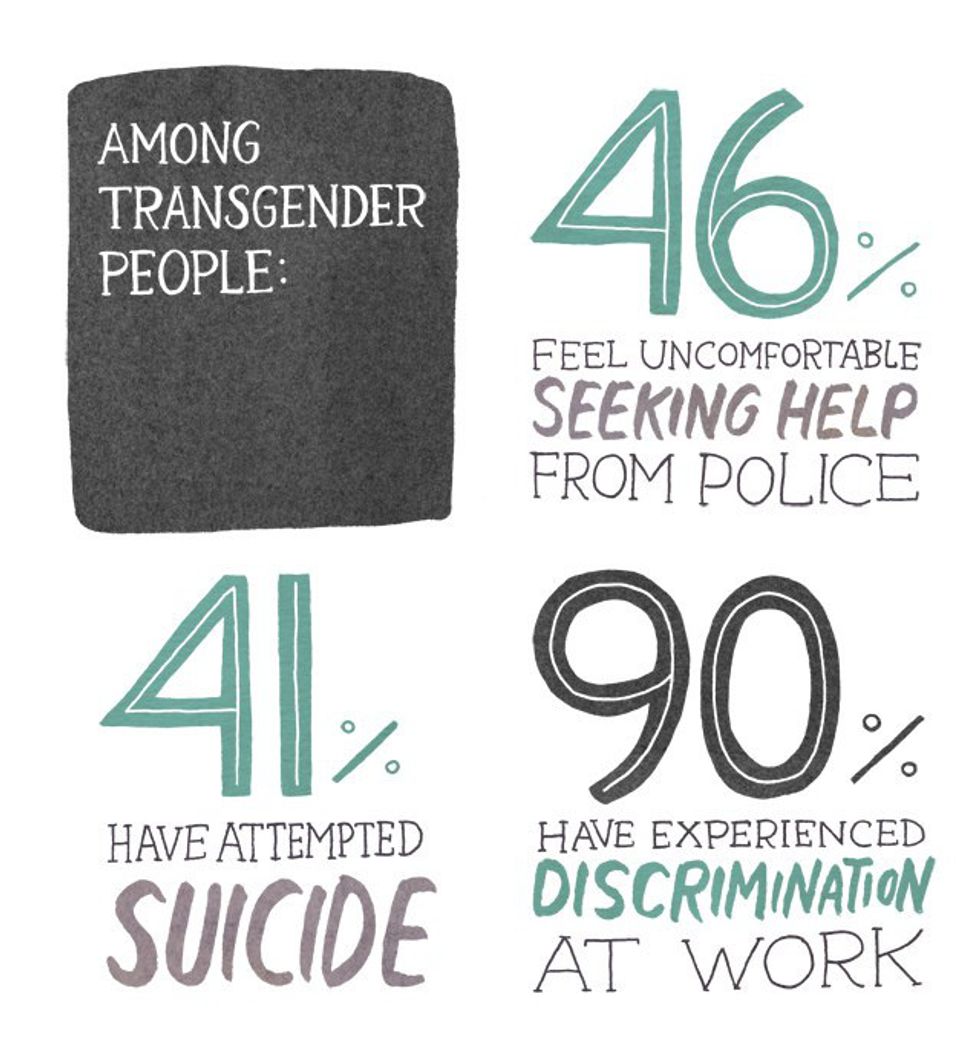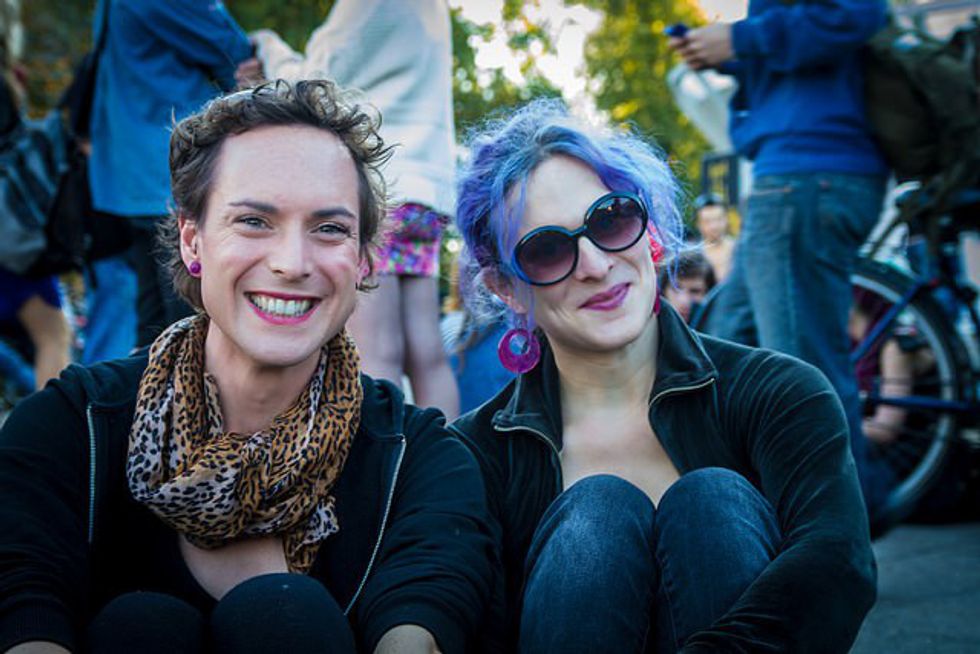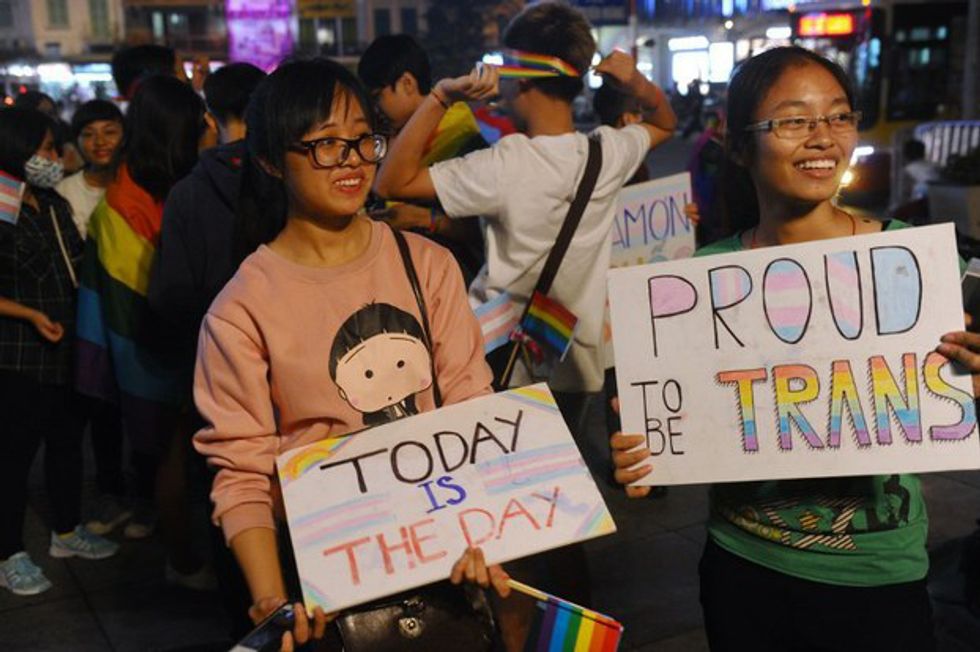I'm going to start off with a disclaimer:
I'm not the one people should be listening to when the topic of transgender individuals comes up. I identify as cisgender, meaning I was born with female anatomy, I've always been referred to with female pronouns she/her/hers and I've never had any problems with it. I've never felt out of place with my gender identity, or ever given it too much thought — which is a privilege compared to those who have struggled with theirs.
Growing Up Out of the Loop
Despite the fact that identifying as a gender other than what's assigned at birth is not new, the transgender identity has come into the spotlight in more recent years due to a variety of reasons, including the rising voices of transgender celebrities advocating for trans visibility, as well as an increased openness of transgender individuals without celebrity status to tell their stories.
There are certain communities of people deemed more difficult to get through to: the more conservative folk and older generations, in general. Though, identifying as transgender is not some Millennial invention, and in actuality, a good number of transgender individuals surpass the Millennial age range. Adding on to that, the transgender identity doesn't exist solely in the Caucasian/white population. Don't be swayed to think Caitlyn Jenner is the poster child/woman of the average person's reality of being transgender.
These are some facts about me that, should my road of personal growth have gone a little differently, could have set me up for utilizing the excuse of being uninformed:
- I was relatively sheltered growing up.
- My household was also somewhat conservative. Not racist or explicitly homophobic, but there was a lack of communication about it all. I wasn't aware of discriminatory practices still occurring — the stuff that didn't show up in my elementary school textbooks. Some of my more liberal beliefs and values I hold today were introduced to me later on, more often by friends or through my own experiences as an adolescent and young adult. I don't blame my parents for this aspect of my upbringing. Recent years have been a learning experience for my whole family, and a centerpiece of my growth into a young adult has been me learning things for myself.
- I'm privileged in several ways as a young white woman in a middle-class family who's able to afford a college education without the kind of difficulty that makes it hard for me to sleep at night.
I'm Not Trans — So Why is This Important to Me?
First of all, not caring about a stigmatized minority group just because I'm not a part of it would be shameful. I've got a thick vein of apathy running to my core, but not when it comes to something like this.
Furthermore, the cause is important to me because — at the risk of sounding like that friend — several of my friends identify as transgender, and my friends are important to me.
My first significant interaction with a transgender person was with a good friend of mine, Luke. When I met him online five years ago, he hadn't come out yet. When we first became friends, I was clueless about what it meant to be transgender. Frankly, I'm still learning, and as someone who doesn't identify as transgender, I don't think it'd be correct for me to say I ever can have a full understanding of it, anyway.
When he did come out a couple years after we'd known each other, I wasn't 100 percent sure what it meant at the time. I was just a youngster, still growing — says the 20-year-old typing this. But I didn't withdraw from him, and I hope I didn't give any indication of a negative reaction. Because, as unknowing as I was at the time, I felt no reason to question his disclosure. My biggest worry was saying the wrong thing — something that would indicate in even the slightest way that I didn't accept him for who he was. I felt honored that he trusted me enough to open up to me at all.
And I listened to Luke. He's a wonderful writer and poet so I read what he wrote, and continues to write, about his experience as a young transgender man and how it has at some point or another impacted basically every aspect of his life. I watched his YouTube videos. I learned things online.
In those first months, I learned what it meant to misgender, and I worked hard on not only making sure I didn't accidentally do it, but also to forgive myself if I did so even in my head as long as I put more effort into not making the same mistake again. It was paramount to me that I used the correct pronouns when talking to him directly and whenever I mentioned "a friend I met online" to other friends and family as well.
No More Excuses
It's not hard to be accepting. Being hateful takes more energy and presents unnecessary danger and harm to people facing things you probably don't understand.
Despite the fact that I met Luke before he came out, and that "transgender" was an unfamiliar term to me at the time, I accepted him for who he was without any doubt. I learned. I wasn't immediately the perfect ally, and I still don't consider myself to be, whatever that is supposed to look like. It's not up to me to come up with a definition of it.
I could have used ignorance as an excuse. I could have said, "I grew up in a conservative household so you can't expect me to know anything," and conveniently forgotten to even apologize for any of my wrongs. I'd be horrified to ever discover an alter ego of mine who fit that kind of character. An alter ego that would consider it appropriate to play the 'uninformed' card well into adulthood, or make my ignorance about me rather than those I'm an ally for.
I'm writing this to tell you why I don't think you have an excuse. If you have access to the internet, social media, whatever, you have the ability to read up and to understand what is going on in the world. Hell, you don't have to write an extensive report on transgender history, but be open-minded to a society that I'd like to think is working to become more inclusive of diversity. Just try. Listen. Even without access to the internet and social media, there are people offline talking about this, giving lectures. Observe the everyday occurrences of discrimination and then tell me it's OK to let it slide, to not give a care.
Don't ever say education about the transgender community doesn't matter. Don't ever look at the face of a transgender person online or on a TV show and say representation doesn't matter.
And don't you dare stand in front of a transgender person and tell them they don't matter.
You know what doesn't matter, in the grand scheme of things deemed acceptable? Excuses. Bigotry. Unapologetic hate.
To those reading this that don't participate in the above: congrats. I guess. It's not praise-worthy to be accepting, but rather making the decision to treat someone with human decency. It's great if you're an ally — just remember who the cause is really about and for.
Learn to be open-minded in this growing world and listen. It's not just the familiar things in this world that matter, but some of the incredible things and friends we come across and let in that do, too.


